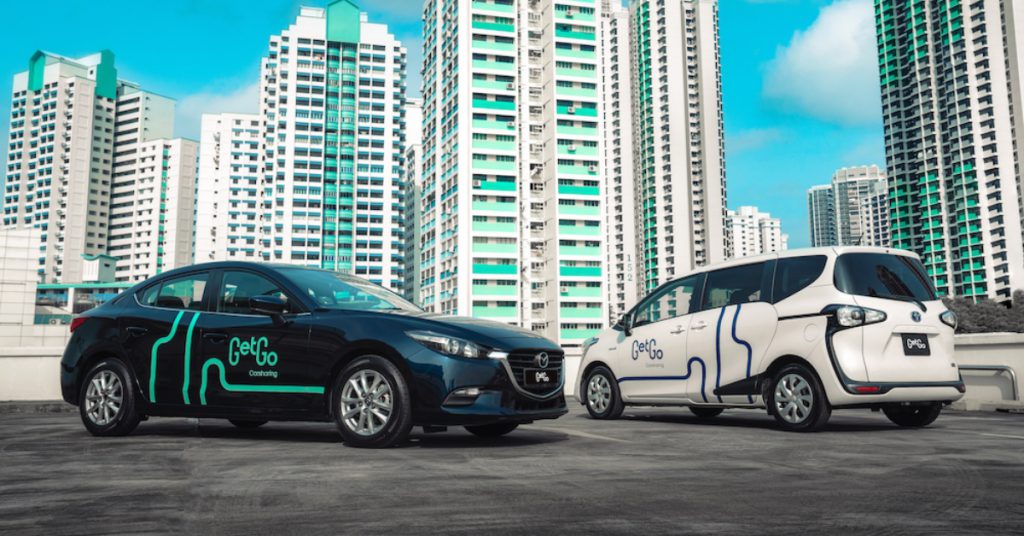Disclaimer: Opinions expressed below belong solely to the author
Car-sharing has long been considered a solution to one of the biggest problems facing public transportation commuters — the issue of first- and last-mile connectivity, at least in regions where the public transportation infrastructure is lacking.
Without adequate access to transit services, commuters are forced to walk considerable distances after alighting their preferred form of public transportation, making ride-sharing services a flexible and convenient option for commuters to rely on.
On Monday (26 February), GetGo signed a Memorandum of Understanding with SBS Transit to promote car-sharing for better first- and last-mile connectivity to or from SBS Transit’s islandwide rail and bus network.
Under the partnership, GetGo’s car-sharing vehicles will be made available within 500 metres of all the 50 MRT stations on the North East and Downtown lines, as well as SBS Transit-managed bus interchanges.
But it beats me how car-sharing can serve the first- and last-mile needs of Singaporeans when the city-state’s public transport system already offers great connectivity.
In 2023, Singapore’s public transport system was ranked fourth in the world after Hong Kong, Zurich, and Stockholm. This should come as no surprise, considering that the city-state boasts more than 140 MRT stations, with a daily ridership of over three million.
Let’s not forget the 40 stations across the two Light Rail Transit (LRT) lines, which see over 200,000 daily ridership, catering to residents who live slightly further from the main train stations.
Singapore’s MRT and LRT lines are also complemented by the city-state’s bus system. With 5,103 bus stops in operation islandwide as of January 2024, convenience is guaranteed even when you’re travelling to corners of Singapore that are not accessible by train.
On top of this, the government is also constantly working to expand Singapore’s public transport network — by 2030, about eight in 10 households will be living within a 10-minute walk of a train station, significantly improving the accessibility of the public transit system.
What cost savings?
The rationale behind the GetGo-SBS Transit partnership gets even more perplexing when you consider GetGo’s Point A to Point A model, which requires users to both pick up and return a vehicle to the same location.
Not only does this add a layer of inconvenience to the service, but it also lacks any inherent cost-saving incentive for users. I would even say that it would be cheaper and more convenient to hail a cab or book a private hire vehicle from an MRT station to wherever you’re heading, even with surge pricing.
I normally get to work around 9:30am, and it takes me a 5-minute walk to get to my office. Now, I don’t have any problem with this arrangement, but say it was raining very heavily, or if I was running late for an important meeting and decided to book a GetGo car, I’d be forced to rent the car for the entire duration that I’m at work, which would work up to quite a bit.
GetGo’s time-based rental can cost anywhere between S$3 to S$22 an hour, and on top of this, I would also have to pay mileage fees, which come up to S$0.39 per kilometre. Even if I didn’t actually utilise the car during the rental period, I’d still be charged by the hour as long as I hadn’t returned it to the same parking lot it was picked up from.
If I returned the car earlier, perhaps during lunch hours, to cut down on costs, I would still need to walk back or find some other alternative mode of transport to work — which ultimately defeats the whole purpose of the partnership of promoting better first- and last-mile connectivity.
During the MOU signing, SBS Transit CEO Jeffrey Sim said that the cost of renting a GetGo could be defrayed if a few people shared a car to complete their journey. But when asked how that would work considering the car sharing firm’s Point A to Point A model, Jeffrey said that SBS Transit doesn’t “have all the answers yet” — which only raises more questions on why the rail operator and GetGo even pursued the MOU without a comprehensive plan in place.
SBS Transit should partner private hire firms
Logically evaluating the partnership, it would have made far more sense for SBS Transit to partner with private hire companies instead of GetGo to provide more value to Singaporeans, given that only slightly more than one-third of Singapore’s population hold the appropriate license to drive a car (as of 2020).
With carpooling options such as Grab’s GrabShare feature, which allows users heading in similar directions to share a ride for lower fares, situating private hire cars at MRT stations can not only provide convenience and accessibility to commuters but also cost savings.
Nevertheless, SBS Transit and GetGo still seem to cling to the hope that the tie-up will provide “optionality” to Singaporean commuters — but it’s unlikely that GetGo’s car-sharing vehicles will gain widespread adoption amongst Singaporean commuters.
Featured Image Credit: GetGo
